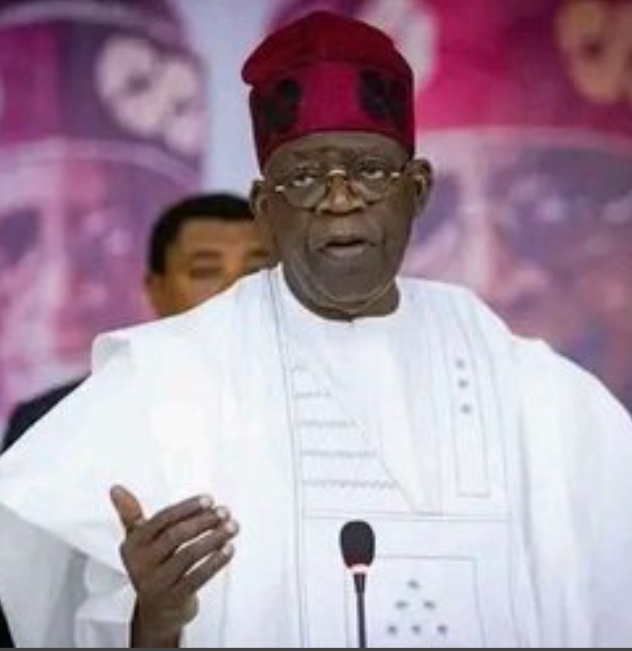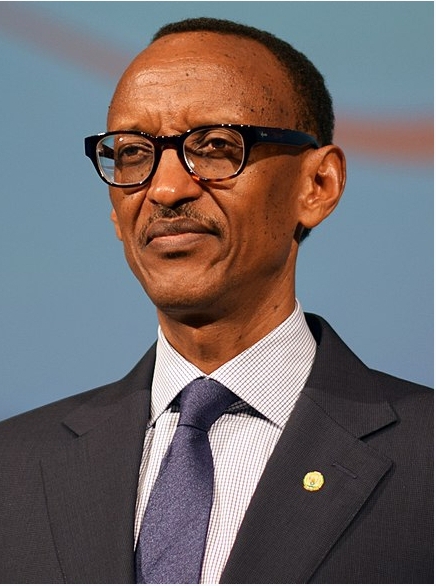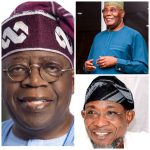Since independence, Nigeria has been facing economic distress with little or no relief in sight. This problem can be traced to poor managers of government affairs and lack of access to the appropriate economic models that could help propel the development of the country. However, the President-Elect has vowed to establish a Government of National Competence that will not only tackle current economic challenges but also build a lasting foundation for the long-term and sustainable growth of the country.

THE CONCEPT OF A GOVERNMENT OF NATIONAL COMPETENCE
What is a Government of National Competence? A government of national competence refers to a federal executive body comprising individuals chosen based on their professional backgrounds, abilities, and expertise, regardless of their political affiliations. This form of government emphasizes the importance of practical knowledge, technical skills, and experience over political loyalties. It is an innovative approach that focuses on the assemblage of talented and knowledgeable individuals from diverse sectors of society into the Cabinet.
Read Also: Praying for A Better Nigeria-Turn Your Prayer into Action!
The primary purpose of a GNC is to leverage the collective expertise of its members to address the pressing economic, social, and political challenges of a nation. Through the convergence of a diverse and proficient cabinet, a GNC will create a new economic model that will adequately address the unique needs of the nation and steer the country out of its financial predicament.
It will foster greater collaboration and innovation in the policy-making process and lay the groundwork for the long-term prosperity and economic stability of a nation- paving the way for a brighter future for all citizens. Certainly, the Government of National Competence represents a forward-thinking approach to governance.
BENEFITS OF GNC
A properly constituted government of national competence will develop custom-made policies and solutions that address the needs of the Nigerian people and act as a catalyst for development in Nigeria. Successful examples of governments that adopted a competence-based approach can be seen in countries like Singapore and Rwanda. These nations have experienced remarkable transformations in their economic, social, and human development indicators, largely attributable to their choices in leadership, and emphasis on the knowledge, skills, and expertise of their key decision-makers.

If a nation with a rich history of cultural diversity like Nigeria adopts a government of national competence, it can help bridge the divide. The time is ripe for Nigeria to harness its intellectual capital and diverse experience in the service of the nation to revolutionize its economy.
DIFFERENT MODELS OF GNC
It is important to analyze different models of Government of National Competence and understand their respective strengths and weaknesses, as well as their suitability for a given nation’s unique socio-political context. Three notable models include the bureaucratic model, the technocratic model, and the collaborative model.
- Bureaucratic Model
According to Charles Lindblom (an American Political Scientist)-the bureaucratic model involves a structure of government with decision-making power centralized among an influential group of public officials. These officials are generally appointed based on their professional background and expertise in various fields relevant to policy-making. This model can be effective in integrating diverse inputs and reaching decisions that consider multiple perspectives. However, it may sometimes lead to lack of transparency and accountability, making the process vulnerable to corruption and inefficiency.
- Technocratic Model
The technocratic model of governance places a high premium on the role of technical expertise in shaping policy decisions. Under this system, policy-makers are often experts in their respective fields and are responsible for formulating policy objectives based on rigorous analysis and evidence. Although this approach may result in policies that are technically sound and well-informed, it may also overlook important social, cultural, or political factors that could have a significant impact on policy outcomes. Additionally, the technocratic model may not afford enough space for public participation and democratic processes, thereby leading to a perceived disconnect between the government and the governed.
- Collaborative Model
The collaborative model of decision-making seeks to harness the potential of multiple stakeholders, including elected representatives, experts, civil society organizations, and the public, to contribute to the policy-making process. This model emphasizes the need for open dialogue, transparent decision-making, and broad-based consultations to achieve optimal policy outcomes. The collaborative model can lead to increased trust in government, more inclusive and sustainable policy solutions, and greater public engagement in the policy process. However, this approach may require a significant investment of time, resources, and infrastructure to facilitate effective collaboration and manage potential conflicts of interest.
Ultimately, the most appropriate model for a nation depends on its unique goals, values, and constraints. It is important to consider not only the theoretical benefits of each approach but also the practical realities of governance, including political culture, institutional capacity, and the resources required for successful policy-making. Adopting a flexible and context-sensitive approach to governance, in which different models are combined and adapted as needed, may offer the best prospects for a nation to achieve a high level of national competence.
CHALLENGES
Emulating the government of the national competence model in Nigeria will require extensive political will and the commitment of its leadership. A thorough restructuring of selection processes and a shift in mindset towards meritocracy are necessary prerequisites to achieving this vision.
- It demands a rigorous selection process. The major challenge that the President-Elect will face in establishing this kind of government is finding genuine people from varied backgrounds who will combine capability, patriotism, and passion for creating positive change in Nigeria.
- Some scholars are well-versed in theories but lacked practical solutions that will effectively address the country’s economic issues or a broader outlook on what it would take to take the nation out of this economic mess.
- Finally, there could also be financial constraints associated with bringing together such a diverse group of individuals and paying them competitive wages. This could prove too great a burden for Nigeria’s already strained budget.
However, there is no one-size fits all approach when it comes to building an adaptive government system that is both strong and adequately agile enough to respond competently to a nation’s economic drift.
ESTABLISHING GOVERNMENT OF NATIONAL COMPETENCE MODEL IN NIGERIA
No single actor holds all the information required to make rational policy decisions. To create a foundation that will transform Nigeria into a vibrant, thriving nation and break this cycle of poverty, the newly elected President must have access to an innovative economic plan full of creative solutions. This is why carefully selected cabinet members based on their professional backgrounds, abilities, and expertise must be recruited to offer a different variety of knowledge and experiences.
Read Also: The Only Way to Ensure a New Nigeria
Together, the team will come up with solutions that were both efficient and effective in addressing the broad spectrum of challenges confronting the nation, including but not limited to economic growth, poverty reduction, social cohesion, environmental sustainability, political stability; macroeconomic conditions such as inflation, unemployment, and fiscal deficits, in addition to microeconomic trends, such as entrepreneurship, human capital development, and technology adoption.
Apart from the challenges of regular economic instability, the nation is also confronted with the challenges of failed monetary policies, increased inflation, a large disparity between the official rate and black-market rate for currency exchange, rampant round-tripping of foreign exchange, oil subsidy fraud, smuggling of heavily subsidized petrol out of the country at an alarming rate, excessive borrowing to service debts and pay salaries, etc.
Read Also: Politics of Redesigning Nigeria Currency
Nigerians must work together before the nation sinks further into economic crisis. Only then can we begin to build a brighter future for the ambitious young population of Nigeria that are hungry to join the millionaires club. Numerous youths in Nigeria are desperate to join the growing number of millionaires without ever having worked in their lives. Special attention should be given to the human development of these young adults who desperately need an opportunity.

While doing this, Nigeria is ripe for a national ideology that encourages hard work and resourcefulness over just dreaming of wealth. Only then can Nigerian citizens begin to think inwardly about how best they can uplift their country through innovation and entrepreneurship. There is a need for a government of national competence that can logically lay out an environment that is conducive to the growth of small-scale businesses to give more young entrepreneurs the chance they need to make their mark and realize true prosperity for themselves.

With the right guidance and mentorship, these young people can transform and contribute to rebuilding their society. Without a doubt, the task is a mammoth one, but not impossible if the President-Elect is willing to take up this challenge to bring us back from economic despair and lead us toward a more prosperous future with quicker results than anticipated.
Read Also: Dangerous Attempt to Re-Write the Rules of Presidential Office in Nigeria.
CONCLUSION
With the remarkable charisma of the newly elected president, a government of national competence can help us to revolutionize the nation, create a path out of poverty, and attain sustainable economic transformation. Such an initiative would set our country on the path of progress and improve the overall comfort for Nigerians. With an initiative such as this. Nigerians will work together in unison towards a better future for themselves and our children. We can only hope that the efforts of the newly elected government will lead us to a rapid economic recovery and development. So, help us God!
Idowu E. Faleye, a certified Data Analyst, Political Activist, and writer, is a graduate of Politics & Public Administration. He’s the Founder/Chief Data Officer at EphraimHill Data Blog–a Data Reporting Site that is niche in Politics & Society. He can be reached at +2348132100608. or ephraimhill01@gmail.com











































![The Trend of Insecurity in Nigeria. [Part 2]](https://ephraimhilldc.com/wp-content/uploads/2024/09/Computer-Monitoring-of-Remote-areas.png)


































